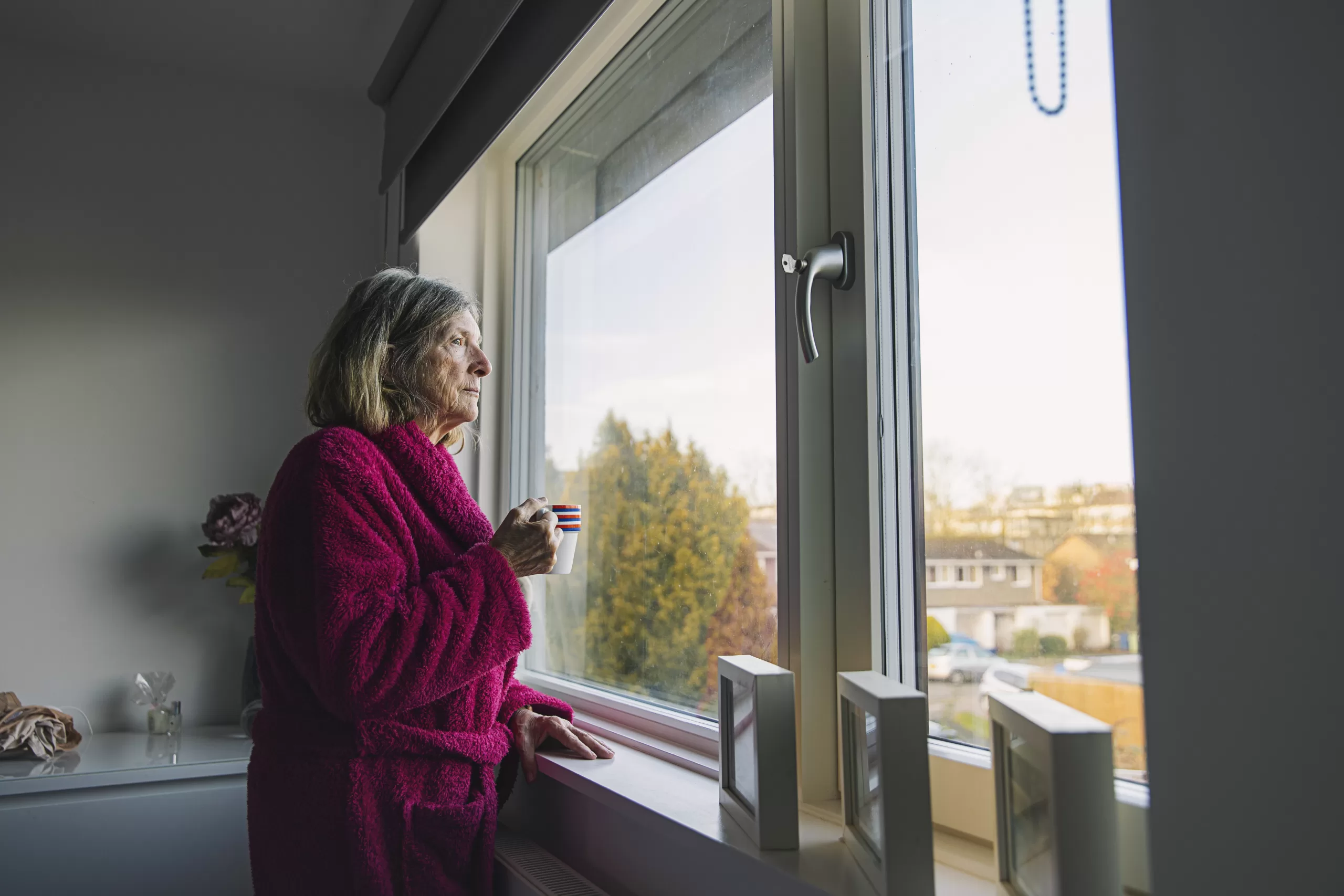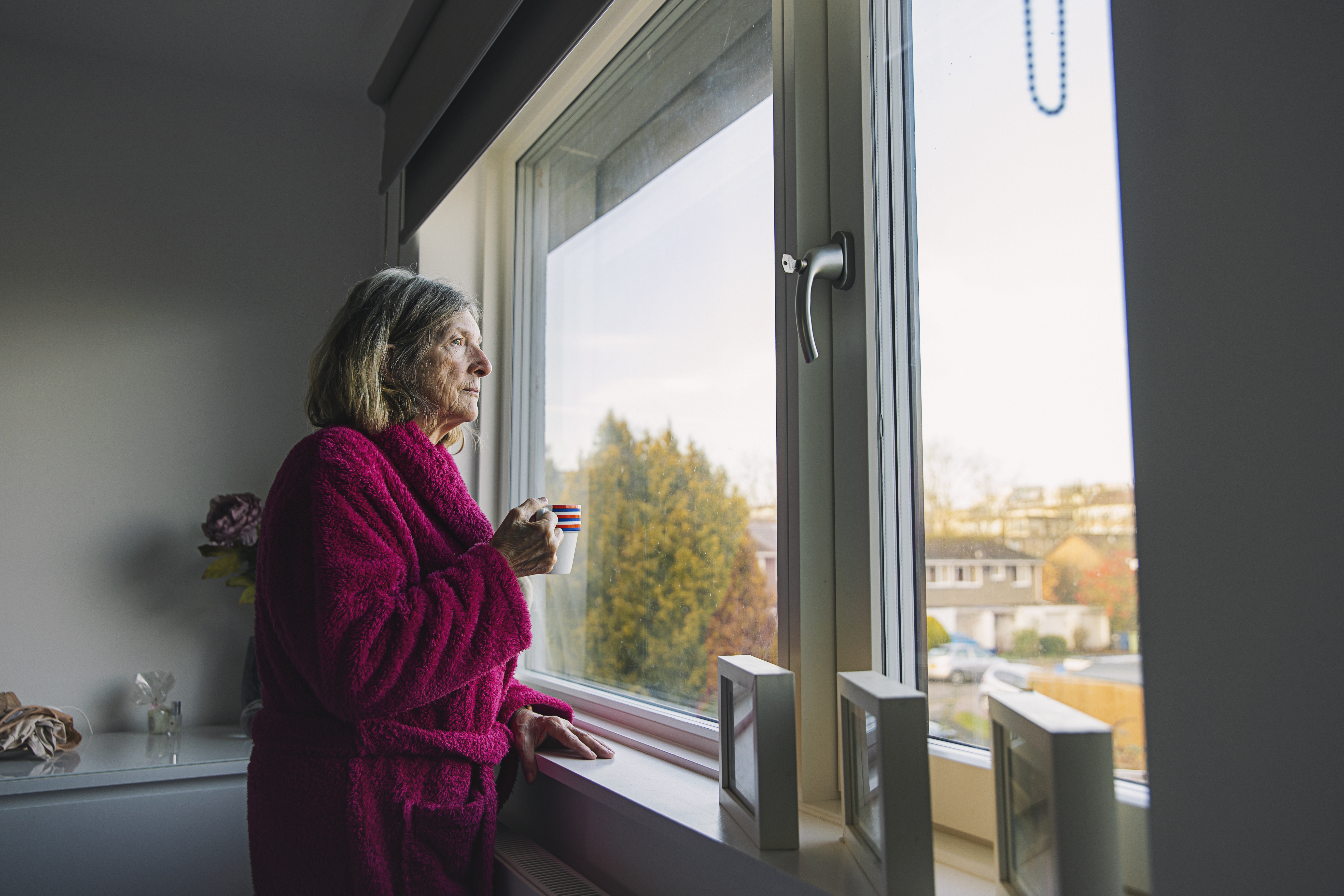Loneliness has already been linked with heart disease, depression, dementia and diabetes.
Researchers from Harvard University in the US suggest the health dangers of feeling lonely occur over time.
Those with situational or new loneliness did not have the same increased risk of stroke.
But it comes after another recent study found that even short-term loneliness can have health risks.
Loneliness is considered a state of mind that causes a person to feel empty, alone and unwanted. It is not the same as social isolation, but can be exacerbated by it.
The latest study was led by Dr Yenee Soh, research associate at the Harvard TH Chan School of Public Health, who said: “Loneliness is increasingly considered a major public health issue.
“Our findings further highlight why that is.
“Especially when experienced chronically, our study suggests loneliness may play an important role in stroke incidence, which is already one of the leading causes of long-term disability and mortality worldwide.”
The study, published in eClinicalMedicine, used data from 2006 to 2018 from the University of Michigan’s Health and Retirement Study.
Some 12,161 people aged 50 and over who had never had a stroke were asked questions about loneliness between 2006 and 2008.
Four years later, almost 9,000 people who remained in the study responded to the same questions on loneliness.
Among those people, 601 strokes occurred between 2010-2018.
After controlling for factors such as social isolation and depressive symptoms, which are closely related to loneliness but distinct, researchers found that people considered lonely at the start of the study had a 25 per cent higher risk of stroke than those not considered lonely.
Increasing feelings of social connection even for one day could result in fewer health symptoms on that day.
David Almeida
Among those who scored “consistently high” for loneliness at both time points, there was a 56 per cent higher risk of stroke than those who had never reported loneliness.
Dr Soh said: “Repeat assessments of loneliness may help identify those who are chronically lonely and are therefore at a higher risk for stroke.
“If we fail to address their feelings of loneliness, on a micro and macro scale, there could be profound health consequences.”
Dr Soh said people should be offered help based on their loneliness – which relates to how people feel even if surrounded by others.
The researchers concluded: “Chronic loneliness was associated with higher stroke risk independent of depressive symptoms or social isolation.
“Addressing loneliness may have an important role in stroke prevention, and repeated assessments of loneliness over time may help identify those particularly at risk.”
More than 100,000 people have strokes each year in the UK.
Stroke is the fourth single leading cause of death in the UK, responsible for 34,000 deaths annually.
It comes after a study published last week found that loneliness can lead to negative health symptoms for people even if they do not generally identify as lonely or typically experience loneliness.
People who experience more temporary feelings of loneliness or have a lot of variability in their feelings of loneliness are likely to have daily health issues related to loneliness, including general fatigue, headaches and nausea, the study suggested.
Data from more than 1,500 people aged between 35 and 65 showed that when participants were less lonely on average, and on days when loneliness was lower than a person’s average, they had fewer and less severe physical health symptoms.
David Almeida, professor of human development and family studies at Penn State College of Health and senior author on the paper, said: “Increasing feelings of social connection even for one day could result in fewer health symptoms on that day.
“Such a daily focus offers a manageable and hopeful micro-intervention for individuals living with loneliness.”
How to get help for loneliness
Tips from the NHS:
- Try talking about your feelings to a friend, family member, health professional or counsellor. You could also contact Samaritans, call: 116 123 or email: [email protected] if you need someone to talk to
- Consider joining a group or class that focuses on something you enjoy; you could ask to go along and just watch first if you’re feeling nervous
- Consider visiting places where you can just be around other people – for example, a park, the cinema or a cafe. If you have a routine, you may start seeing the same people here
- Consider peer support, where people use their experiences to help each other. Find out more about peer support from Mind
- Get practical tips and advice to help with loneliness on Every Mind Matters
- Listen to the free NHS mental wellbeing audio guides
- Look after your health and spend time in nature if you can, which can reduce feeling of loneliness

